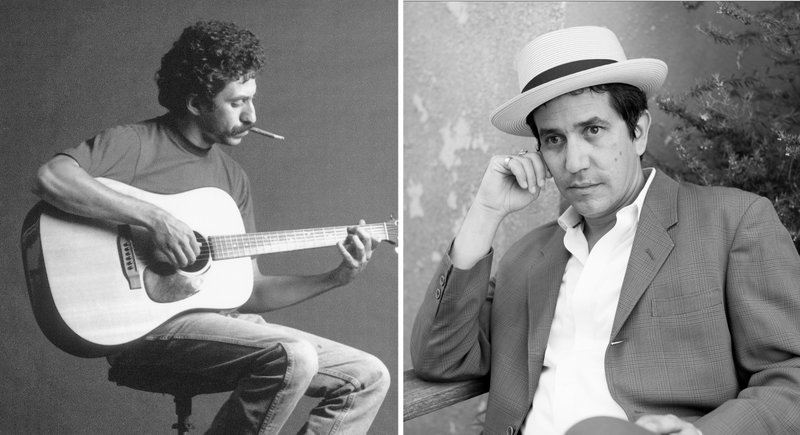It would make a story to rend the heartstrings: Little A.J. Croce sitting at his father's knee, listening to songs like "Bad Bad Leroy Brown" and "Time in a Bottle" being composed, knowing one day he would make Jim Croce a proud papa when he came into his own musical success.
Sadly, no part of that story is true. A.J. was 2 years old when Jim Croce died in a plane crash in 1973. He says he has no real memories of his dad -- "of course, it's hard to discern memories from photographs and stories; we all have pretty fragile memories" -- and his musical inspiration came from Ray Charles, Stevie Wonder and rhythm and blues men like Floyd Dixon, one of the survivors of the Central Avenue music scene in Los Angeles.
FAQ
‘Croce: Two Generations of American Music’
WHEN — 7:30 p.m. Thursday
WHERE — Starr Theater at Walton Arts Center in Fayetteville
COST — The show is currently sold out; some tickets may be released Tuesday or Wednesday
INFO — 443-5600
Instead, A.J. Croce built his own career, touring first with B.B. King -- when Croce was just 18 -- then with other legends like Ray Charles, the Nevilles, James Brown and Aretha Franklin. He's written with names like Robert Earl Keen, and his eight studio albums have charted on U.S. radio charts as diverse as Top 40, College, Americana and Blues. David Wild of Rolling Stone has called him "one of our greatest young songwriters."
"I came to know my dad like you did," he says in a phone interview from Nashville, Tenn. "From the radio."
But the younger Croce found a connection the casual fan couldn't. When he was in his early 30s, he discovered some homemade tapes of Jim Croce learning to play the same kind of songs -- even the same songs -- that A.J. had cut his teeth on.
"He was learning the songs I had been playing since I was 12 or 13 years old," A.J. Croce says with something like wonder in his voice. "I kind of got the chills."
About the same time, his mother gave him his father's last guitar.
"My dad never toured with his own guitar until the last few months of his life. He always used a borrowed one," A.J. says. "This guitar was from 1933, and he gave it to my mom. They had been a duo in the '60s. And finger style came really naturally to me -- maybe because I was a piano player."
With his dad's instrument in his hands, he "felt obligated to learn the songs that were written on it -- his first two albums." Asked why, he says, "for the same reason I wanted to learn Fats Waller on the piano -- because it was hard and beautiful." But playing those songs in public was a whole different thing. Croce had turned down plenty of opportunities to make a lot of money doing that. The difference, he says, was that now he was playing music he loved, not just music that belonged to his father.
He did the first "Croce: Two Generations of American Music" show in 2015.
"It was so emotional, I can't even tell you," he says. "There are a lot of emotions attached to some of these songs -- and the history that goes along with them. It's not just my father but my mother, my grandparents -- it's about my father's life but also about mine.
"I found this balance between playing the music that both my father and I were influenced by -- which is fluid in a sense, as far as a set goes; I can play a thousand songs we have in common -- and playing my stuff, stuff that really connects to my influences and his influences. The only part of the show that remains relatively the same is his: There are only three albums.
"Out of those three, I play a handful of songs I think the audience would kill me if I didn't play, and then I play the stuff I really love -- which isn't all different. I'm not there to entertain myself as much as I am to entertain the audience."
And does Jim Croce make an appearance in A.J.'s mind?
"I feel like I've accepted a part of myself that I had not embraced for many, many years, and that is the connection," he says. "It's not his presence. My belief system doesn't go there. It's my connection to accepting all the parts of myself. And he's part of that. And that is even more powerful."
NAN What's Up on 01/06/2017

